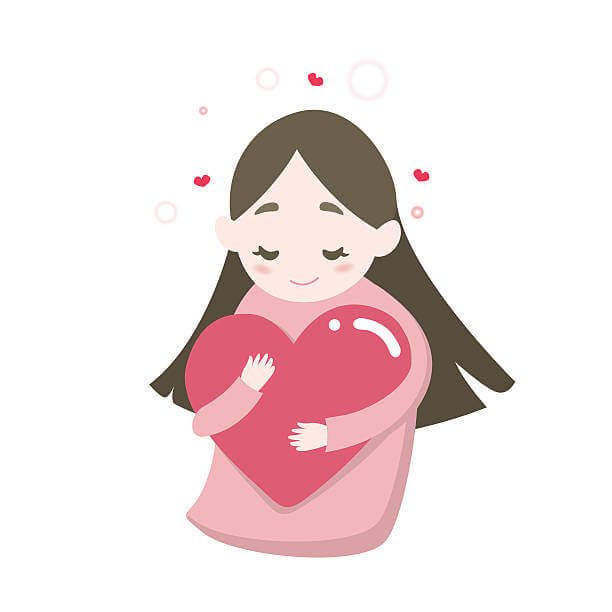Written by Deepti Aswal | Reviewed By John Victor | Updated On September 21, 2022

Listen to this article in Audio
“If your compassion does not include yourself, it is incomplete.”
~ Jack Kornfield
Most of us (like me) grew up learning the values of kindness and compassion, and probably believe in them as an adult. Compassion- by definition- for most of us was something that was shown to ‘others’. I never knew it extends to oneself too.
So, when my friend broached the topic of ‘self- compassion’, it felt like a foreign concept. She told me to read Self Compassion by Kristin Neff, which inspired me to write about the same (Seriously, do read it, it’s amazing).
And so here I am, hoping that its essence reaches at least few of you. This concept will be covered in 2 parts. This article focuses on Part 1, i.e. discussing what Self- compassion entails, and what is doesn’t.
What is Self- Compassion?
The most prominent definition has been given by Kristin Neff, who states- “Self-compassion entails being warm and understanding toward ourselves when we suffer, fail, or feel inadequate, rather than ignoring our pain or flagellating ourselves with self-criticism.”
The modern concept of self- compassion has its foundations in Buddhist philosophy, which places strong emphasis on compassion- one must learn to take care of oneself, before caring for others. If we continually judge and criticize ourselves, while trying to be kind to others; we draw artificial boundaries/ distinctions that lead to feelings of separation and isolation.
Think of it in this way: self- compassion is just like the compassion you show for others, except you show it to yourself. For instance, you notice when others are in pain/ having a tough time. Self- Compassion involves noticing the same for yourself too. On seeing others’ suffering, you try to find ways to help them. Self- Compassion involves doing the same for yourself. So, instead of berating yourself for your failures or inadequacies, you understand that you are not perfect- and that is okay, since no human ever is.
What is self- compassion composed of?
As is the case with most psychological concepts, a no. of researchers have provided their own contributions, which leads to a plethora of components of self- compassion. However, I will discuss 3 key components that have been widely agreed upon, and have been given by Neff-
This is perhaps the most obvious component. Self-compassion entails extending warmth and gentleness towards oneself when dealing with pain, personal failures, and inadequacies; rather than ignoring them or criticizing oneself.
The second component focuses on realization of the shared human experience, i.e. being human means having vulnerabilities, shortcomings, dealing with failures. Recognition of this removes the harmful line of thought that “this only happens to me.”
Self- compassion involves maintaining openness while dealing with one’s negative emotions, and neither suppressing nor exaggerating them. Mindfulness is a state of mind that is non- judgmental- it takes note of all thoughts and feelings just as they are, without denying or altering them. The key idea here is that you cannot ignore your pain, and feel compassion for it at the same time. However, it doesn’t mean getting caught up in all the negativity.
So What Isn’t Self- Compassion?
Often, people associate and/ or equate self- compassion with other concepts, which leads to misguided notions about it. So, I attempt to clear some of the most popular myths regarding self- compassion-
This is a chief myth that self- compassion means feeling sorry for yourself. However, as Neff explains, “self- compassion is antidote to self- pity.” When we pity ourselves, we tend to obsess over the negatives. Self- compassion, on the other hand, teaches us to accept negative feelings and experiences, and embrace them with kindness, as a part of human life.
Again, strength is considered in suppressing/ ignoring pain in the face of difficulties. But, as research shows, self- compassion actually improves psychological adjustment, and aids coping. People believe that showing forgiveness and kindness to others is strength; then why must it be a weakness when shown to oneself??
Many believe that caring for yourself means neglecting others. However, research indicates that self-compassion helps people sustain the act of caring for others. Self- compassionate people able to protect themselves- they can understand and help others in pain, without getting drained by it themselves (which can very well happen to most people).
While the 2 are similar, they do contrast. Self- esteem is what worth we hold of ourselves. Western notions base self- esteem on how different/ special we are from others. Attempts to increase it might also lead to putting others down, distort/ hide our inadequacies, in order to feel better about ourselves. However, self- compassion isn’t based on evaluating oneself. You don’t have to be better than others to feel good about yourself.
The idea here is that self- criticism is vital to improve our standards. However, studies on students show that self- compassion is a better force for change than criticism. Acknowledging our failures with kindness makes us more committed to not repeat them, and improve- for instead of judging, we see things clearly, with a balanced perspective.
Above all, it is acceptance of one’s fallible nature that is the essence of self- compassion. Making mistakes, failing, having weaknesses, is all part of being human. Things will not always go/ be the way we desire them- this is a reality. Embracing this, and yourself- shortcomings and strengths alike- is all what Self- Compassion is about.

Corporate-Work-Stress
Creativity Not Encouraged By Society | Psychologist Explains
Corporate-Work-Stress
The Advent of Online Counseling For Mental Health.jpg)
Corporate-Work-Stress
Why are Women expected to be ‘Modest’ and ‘Chaste’?
Corporate-Work-Stress
ALL ABOUT GRIT